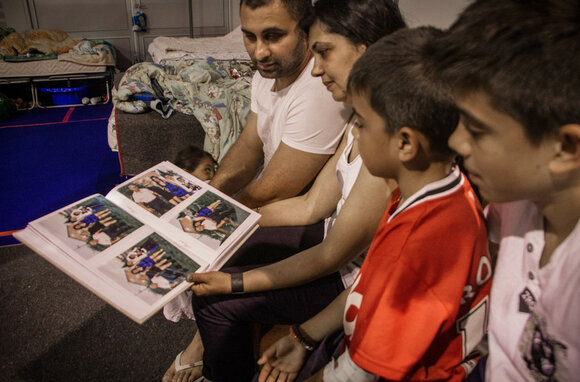
This page contains documents and other resources related to children's care in Europe. Browse resources by region, country, or category.
This page contains documents and other resources related to children's care in Europe. Browse resources by region, country, or category.
Displaying 11 - 20 of 3249
The authors of this study aimed to gain insight into the perceived living environment in different residential youth care settings from the perspectives of 26 youth, 14 parents, and 35 professionals in the Netherlands.
A valuable resource for practitioners, researchers and educators, this book puts forward a powerful case to think more broadly and flexibly about transition planning with care-leavers, placing the voices of young people at its heart. This book grew out of qualitative research interviews held with a small and diverse sample of young adults who were in the process of transitioning from out-of-home care (foster care, kinship care, or residential care) in London, England.
This study examined 18 months of published Child Safeguarding Practice Reviews across England to identify the intersecting characteristics, vulnerabilities, harm types, indicators and issues with formal guardianship (safeguarding by carers, schools, local authorities, police and health professionals). Results revealed that children were missing, vulnerable, harmed and showed indicators of exploitation in numerous and intersecting ways.
This article addresses two issues: whether the inequalities faced by cared for children will persist in different stages of their lives and whether these inequalities are dependent on the specific out-of-home care setting, i.e. residential or foster care. The authors examine data from the German Socio-Economic Panel (SOEP), covering a 50-year period.
At the end of 2019, an innovative approach was launched in social work with young people in out-of-home care in Riga. This approach included prevention, changes in the form and methods of social work, and planning for the transition period.
The purpose of this macro-level study is to examine the effects of social welfare benefits and services on the demand for child removals. The study is based on the panel data of Finnish municipalities and their social welfare indicators for the period 2010–2021.
The purpose of this quantitative study is to investigate the relationship between agency and well-being in a group of care leavers (N = 48) recruited from the alternative care services offered by the cities of Florence and Prato in Italy and involved in the Caring project.
A teenage orphan who became a posterchild for Moscow's deportation of Ukrainian children to Russia said he was instructed by officials to recite pro-Russian talking points for television cameras and threatened with a beating when he complained about conditions.
This cross-sectional study was conducted in 24 Lithuanian schools and involved parents/caregivers and their children aged 12 to 17. The study aimed to collect and analyse self-reported data on left behind children's emotional and behavioural problems and compare children’s reports with those of parents/caregivers.
The theme of the Summit is on improving the health and wellbeing outcomes for Scotland's care experienced young people. We know from conversations in our forums and events, feedback from young people and what was said during the Independent Care Review, and more recently as part of the 100 Days of Listening, that the link between health and social work is inextricable and without collaboration between all those who support young people to thrive, for many care experienced young people the health inequalities they face will continue.